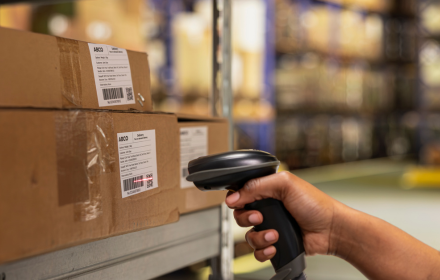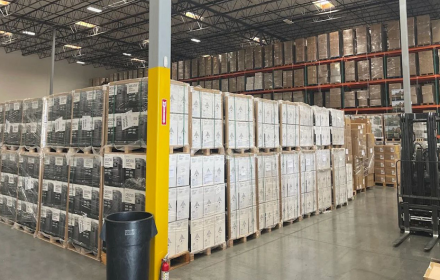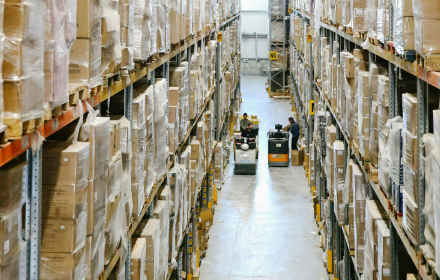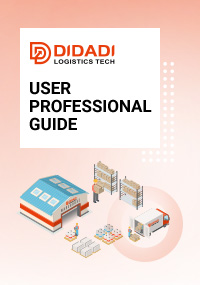How to Choose the Right Freight Forwarder When Shipping from China to Amazon FBA

Shipping products from China to Amazon FBA is one of the most critical operational foundations of any e-commerce business. As your inventory moves across borders, regulations, and Amazon’s strict warehouse requirements, the freight forwarder you work with becomes more than just a transportation provider — they become the lifeline between your suppliers and your sales potential.
Selecting the right freight forwarder can accelerate your supply chain, prevent costly delays, and protect your brand reputation. Choosing the wrong one can mean weeks of inventory shortages, rejected shipments at Amazon warehouses, customs troubles, or unpredictable costs that damage your margins.
This is why choosing a freight forwarder cannot be rushed, outsourced blindly, or based solely on the lowest quote. It requires understanding how your logistics partner should operate, what standards they must meet, and how their capabilities align with Amazon FBA’s unique requirements.
This guide provides an in-depth approach — deeper, clearer, and more strategic — to ensure you select the right logistics partner for your China-to-Amazon supply chain.
Many new sellers believe a freight forwarder simply books space on a plane or ship. In reality, a professional forwarder manages a long chain of responsibilities that connect your Chinese supplier with an Amazon warehouse in the U.S. or Europe.
A forwarder must coordinate supplier pickup, domestic trucking, warehouse consolidation, export clearance, main-route shipping, import handling, customs documentation, appointment scheduling, and final delivery under Amazon’s strict requirements.
Each step requires accuracy — not only in operations but also in timing, paperwork, compliance, and communication.
If even one component is handled poorly, your shipment may be delayed, rejected, or re-routed, creating weeks of additional lead time.
A competent freight forwarder acts as the invisible infrastructure that keeps your business running smoothly, even during peak seasons or unexpected disruptions.
Amazon FBA has its own rules, formats, size limits, labeling requirements, pallet guidelines, appointment systems, and shipping windows.
General forwarders may understand international shipping, but Amazon’s operational system is an entirely different world.
An experienced FBA forwarder knows:
Amazon’s carton and pallet restrictions
How to avoid shipments being refused at the warehouse
How to prepare labels and documentation that Amazon systems can scan
The exact steps involved in scheduling a delivery appointment
How receiving centers in different regions operate differently
How to prepare shipments so they match Amazon’s inbound workflow
Sellers often choose the cheapest forwarder at the beginning, only to lose far more money later when Amazon refuses a shipment, requests repacking, or asks the seller to relabel everything.
Experienced FBA forwarders reduce your business risk dramatically by preventing avoidable mistakes before they occur.
Strong logistics almost always depend on what happens at the origin, not the destination.
A reliable China-based freight forwarder must be capable of:
Picking up goods from factories across different provinces
Consolidating multiple suppliers into one shipment
Checking carton measurements and ensuring compliance with FBA standards
Applying FNSKU, carton, and shipping labels correctly
Repacking, adjusting volume weight, or preparing bundles when needed
Temporary storage for goods waiting for consolidation
China’s production landscape is fast-paced and unpredictable. Suppliers change specifications, delay production, adjust packaging, or fail to follow Amazon’s guidelines unless someone monitors them.
Forwarders with strong China operations act as your “eyes and hands” on the ground, preventing small issues at the factory from becoming major problems at the warehouse.
Choosing between air, sea, express, or rail is not only about speed versus cost. It reflects your inventory strategy, margin structure, and inventory forecasting.
Air Freight
Best for medium-size shipments that must replenish stock quickly. A forwarder should be able to offer multiple airlines, consolidate cargo, and navigate airport congestion.
Sea Freight (FCL & LCL)
Ideal for large shipments or long-term replenishment plans. An experienced forwarder should explain port options, transit variations, and how to avoid congestion during peak periods.
Express Couriers (DHL, UPS, FedEx)
Useful for urgent or small-volume shipments. A forwarder adds value by optimizing packaging size, avoiding unnecessary volumetric costs, and ensuring full FBA compliance before dispatch.
Rail or Trucking (for EU Shipments)
Increasingly popular for selling in Europe. Routes, customs rules, and speed can differ significantly, so you need a forwarder who understands the details.
A forwarder who only pushes one shipping mode is not thinking about your business — they are thinking about their own convenience.
Two sellers can pay the same factory price but end up with dramatically different landed costs because of logistics.
A trustworthy forwarder must explain:
What is included in the quote
What charges may occur later
How destination handling fees work
What factors can increase or reduce cost
Whether duties and taxes are included or excluded
How warehouse fees are calculated
Unclear pricing is a sign of weak internal structure or intentional hidden margins. Sellers who choose the cheapest quote often pay more later through unexpected “destination fees” or adjustments.
Transparency is not a bonus — it is proof of professionalism.
Logistics is a dynamic supply chain service. Communication decides whether you can make business decisions at the right time or whether your inventory becomes a mystery.
A dependable forwarder communicates:
Shipment status
Vessel or flight details
Unexpected customs checks
Amazon appointment schedules
Warehouse receiving issues
Poor communication is one of the biggest causes of delays, stockouts, and unnecessary costs.
Your forwarder should not leave you asking for updates — they should update you before you even ask.
Many sellers assume customs is just paperwork, but it is where most delays actually occur.
Your forwarder should help you understand:
How HS codes are selected
What documentation is required for your product
Whether your product category has restrictions
What risks or inspections may occur
How to manage duties and tax obligations
Customs is not optional. It is a gate that cannot be ignored, bypassed, or simplified.
Your forwarder must be competent enough to support you through it.
Amazon FBA warehouses operate differently from normal warehouses. Appointments must be scheduled in advance, labels must be readable, trucks must meet Amazon’s accepted carrier list, and receiving windows can vary drastically.
A forwarder inexperienced with FBA may:
Send trucks without appointments
Deliver goods using carriers Amazon does not accept
Ignore pallet height limits
Fail to provide carton information in the required format
Any of these issues can result in a rejected shipment.
A specialized freight forwarder minimizes these risks and protects your supply chain from avoidable inefficiencies.
The forwarder you select must align with your business goals, not only your budget.
A strong partner helps you:
Plan inventory cycles
Navigate peak seasons
Prevent stockouts
Negotiate shipping modes
Maintain cost stability
Improve supply chain reliability
Logistics is part of your competitive advantage. Sellers who treat freight forwarders as strategic partners grow faster and more reliably.
Selecting a freight forwarder when shipping from China to Amazon FBA is one of the most important decisions you will make as an e-commerce brand. The right forwarder ensures your inventory flows smoothly, your costs remain predictable, your Amazon metrics stay healthy, and your business grows with fewer interruptions.
A forwarder should provide expertise, structure, transparency, compliance knowledge, China-side operational strength, customs understanding, and reliable communication.
For importers looking for a dependable logistics partner that supports China-to-FBA shipments with end-to-end operational capability, DIDADI Logistics provides supplier pickup, consolidation, FBA preparation, customs coordination, and Amazon-compliant final delivery for sellers in the U.S. and Europe.
A strong supply chain begins with the right freight forwarder — and your Amazon success begins with choosing wisely.
Recommended Reading















